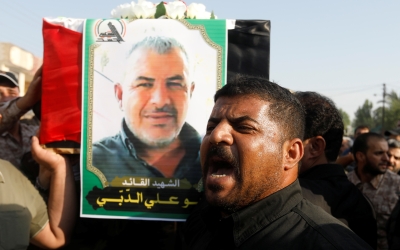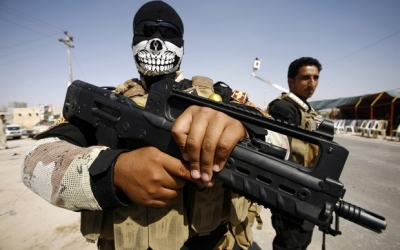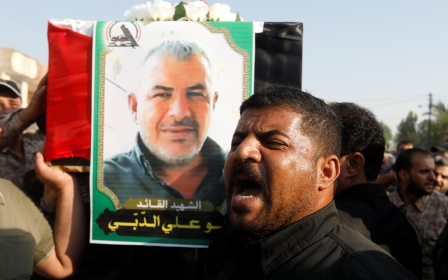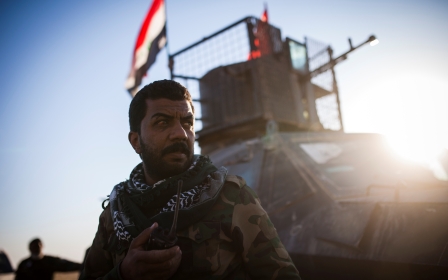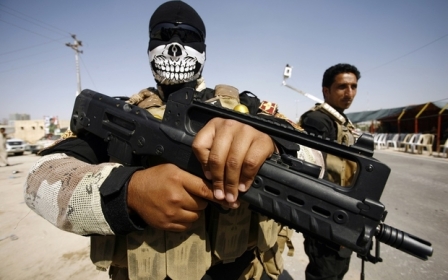Iraq to file complaint with UN over Israeli strikes on militia bases
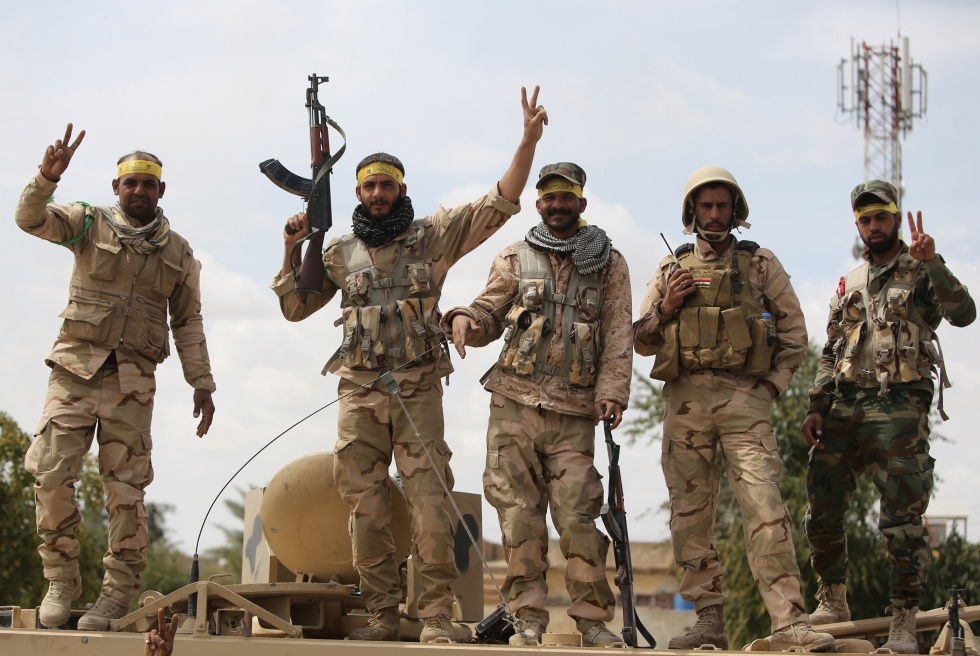
Iraq's government is preparing a complaint to the UN after finding Israel was "certainly" behind several attacks on bases of government-aligned paramilitaries, a parliamentarian and leading member of the paramilitary force has said.
Since July, a series of explosions have hit bases, weapons depots and a convoy belonging to the Popular Mobilisation Forces (PMF), also known in Arabic as Hashd al-Shaabi, a grouping of mostly Shia militias with close ties to Iran and who have fought alongside Iraq's army.
Middle East Eye revealed earlier this week that Iraq’s intelligence services believe that five recent drone attacks on the PMF were launched from bases under the Syrian Democratic Forces militia’s control in northern Syria.
The Iraqi official, who had knowledge of the latest intelligence briefing from Iraq’s security services, said the strikes were conducted by Israel, with the understanding of the SDF and backing of Saudi Arabia.
The PMF has blamed both Israel and the US for the string of blasts and drone sightings at its bases, but Baghdad had thus far refrained from making accusations.
Ahmad al-Assadi, a PMF official and spokesman for its parliamentary bloc "Fatah," told journalists on Thursday in his office in central Baghdad that government probes would name Israel.
"Some of the government investigations have reached a conclusion that the perpetrator behind some of the attacks is absolutely, certainly Israel," he said, declining to provide details on the evidence.
"The government is preparing sufficient evidence and documents to complain to the [UN] Security Council. It won't submit a complaint against an unknown entity."
'Israeli personnel were operating the drones'
The PMF were established in 2014 to fight the Islamic State group and are now being formally integrated into Iraq's armed forces.
The US and Israel claim some units are an extension of Iran's forces and have been equipped with precision-guided missiles that could reach Israel.
Since mid-July, five PMF arms depots and training camps have been targeted in apparent attacks.
The group said it had also fired at surveillance drones over two other bases, the AFP news agency reported.
PMF top officials have said the US is broadly "responsible" but specifically blamed Israeli drones for the latest strike on Sunday, which killed a fighter near Iraq's western border with Syria.
The Pentagon has denied responsibility and said it is cooperating with Iraq's investigations.
According to the senior Iraqi official who spoke to MEE, northern Syria was used to launch the attacks because Israeli attack drones do not have the range to hit targets in Iraq from Israel.
"Israeli personnel were operating the drones from SDF-controlled bases," the Iraqi official said.
When asked if it was responsible for striking the PMF in Iraq, the Israeli military told MEE it could neither confirm or deny its responsibility.
PMF 'specifically targeted'
"Israeli planes supported by the US? We can't make that accusation. Did America give a green light? We can't make that accusation," Assadi told reporters.
But, he added, the PMF had been expecting an attack amid rising US-Iranian tensions since Washington withdrew from the landmark nuclear deal with Tehran last year.
The US has since imposed tough sanctions on Iran's top officials, its energy and financial sectors, as well as a host of Iraqi, Lebanese and Palestinian firms and people allegedly tied to Tehran.
"Are the attacks that happened surprising for the Iraqi government, the Hashd, or other factions? Of course not," Assadi said. "It's clear. The Hashd is being specifically targeted."
Middle East Eye delivers independent and unrivalled coverage and analysis of the Middle East, North Africa and beyond. To learn more about republishing this content and the associated fees, please fill out this form. More about MEE can be found here.


